- Classification of symptoms and signs of low testosterone levels, according to the Endocrine Society’s Clinical Guidelines
- What Can Impact Your Testosterone?
- Drugs that decrease testosterone levels
- Stress kills your testosterone
- Ways to Reduce Stress and protect your T
- Other Issues That Can Impact Your Testosterone
- Low testosterone symptoms in men: Conclusion
- Summary of Advice to Make the Lowest Possible Testosterone Impact
- FAQ Section
Classification of symptoms and signs of low testosterone levels, according to the Endocrine Society’s Clinical Guidelines
Group A: Symptoms and signs suggestive of androgen deficiency (low testosterone) in men:
- Incomplete sexual development, eunuchoidism, aspermia
- Reduced sexual desire (libido) and activity
- Decreased spontaneous erections
- Breast discomfort, gynecomastia
- Loss of body (axillar and pubic) hair, reduced shaving
- Very small or shrinking testis (especially 5 ml)
- Inability to father children, low or zero sperm counts
- Height loss, low-trauma fracture, low bone mineral density
- Reduced muscle mass and strength
- Hot flushes, sweats
Group B: Symptoms and signs associated with low testosterone that are less specific
then in group A
- Decreased energy, motivation, initiative, aggressiveness, self confidence
- Feeling sad or blue, depressed mood, persistent depressive disorder (PDD)
- Poor concentration and memory
- Sleep disturbance, increased sleepiness
- Mild anemia (normochromic, normocytic)
- Increased body fat, body mass index
- Diminished physical or work performance
Hypogonadism
Hypogonadism in males is a clinical syndrome complex that comprises symptoms with or without signs as well as biochemical evidence of testosterone deficiency. The diagnosis of hypogonadism thus includes both clinical history and examination as well as biochemical assessment of serum testosterone levels.
Hypogonadal symptoms are precipitated at different testosterone levels. Total testosterone levels of less than 8 nmol/l highly support a diagnosis of hypogonadism whereas levels greater than 12 mmol/l are likely to be normal. The gray zone between 8 and 12 nmol/l requiresfurther evaluation and assessment of free or non-sex hormone-binding globulin-bound (bioavailable) testosterone. A trial period of testosterone treatment may be required.
Copyright © 2009 S. Karger AG, Bas
The selection of symptoms indicating androgen deficiency is based on clinical observations and intervention studies with testosterone substitution therapy. There are no population-based symptom surveys relating symptoms to testosterone levels. There are few symptoms that are specifically indicative of hypogonadism, though lack of pubertal development (voice deepening, genital organ maturation, development of secondary hair, and muscle accretion) is a strong indicator of hypogonadism in a person of postpubertal age.
Whether loss of libido or spontaneous erection is more suggestive than decreased energy or PDD of hypogonadism could be debated.
The complete spectrum of symptoms potentially related to androgen deficiency needs to be assessed where hypogonadism is part of the differential diagnosis. Loss of body hair requires a long duration of hypogonadism and a beard may stay for decades in a severely hypogonadal man. Changes in hair growth and shaving frequency may be a more specific and sensitive indicator of testosterone deficiency.
Loss of libido and vigor becomes significant below a serum testosterone level of 15 nmol/l whilst erectile dysfunction and flushes are significantly related to a testosterone level below 8 nmol/l.
Symptoms related to comorbidities, psychological influence, and age will influence and confound the diagnosis of low testosterone. This is further compounded by the knowledge that there are no clear-cut testosterone levels where hypogonadal symptoms occur.
All these factors significantly affect the overall assessment and decision-making regarding a diagnosis of hypogonadism. Low testosterone is an additional factor afflicting your physical and psychological status. Such conditions include but are not limited to metabolic syndrome, type 2 diabetes, cardiovascular disease, chronic obstructive pulmonary disease, and depression.
What Can Impact Your Testosterone?
There are many factors you may not think would impact your body that actually affects your testosterone levels.
Prescriptions and Food Additives Make a Huge Difference in Your Sex Life
These rascals work hard to decrease your hormone levels even as you work hard to elevate them.
So what factors are the most important?
Consider the following list.
Alcohol – is a drug, but not one we typically group with prescriptions or antibiotics, so it will be handled separately.
The main point with alcohol — moderate your drinking. No matter what a 22-year-old may think, alcohol is a leading cause of a host of medical issues, including impotence.
Nothing slows an erection more than “just a few beers.”
Junk food – is a topic most of us would prefer to avoid.
Who doesn’t love their coffee in the morning? The truth is that caffeine and sugar are two of the most nefarious testosterone thieves.
If you can take coffee with a little less sugar, it will help.
If you can have one coke a week instead of one every hour, that will help.
Can you substitute your unhealthy drinking habits with water? That will help tremendously.
Drugs – whether legal or illegal, prescription or over the counter — greatly impact your body.
While some effects can be obvious (making you feel better, inducing recovery, etc.) you need to be aware that they also impact your testosterone levels.
This doesn’t mean you can never take another antibiotic; it just means you shouldn’t ingest Tylenol every five minutes.
A particularly nasty list of drugs is included below to show just how vast their impact can be.
Romantic dinners – This is an odd one to be sure, but it seems to be related to gluttony. When you’re stuffing your face with a full three-course meal, and you only needed one of those courses, it slows your body down – and rapidly decreases testosterone.
Even if you can maintain an erection after a big meal, it’s not normally as hard (or big!) as when your body is working at peak efficiency.
Overindulging when it comes to food also leads to a host of medical problems such as heart disease, obesity, and arteriosclerosis.
The following drugs, in particular, have been implicated in the reduction of sex drive and thus should only be taken as needed.
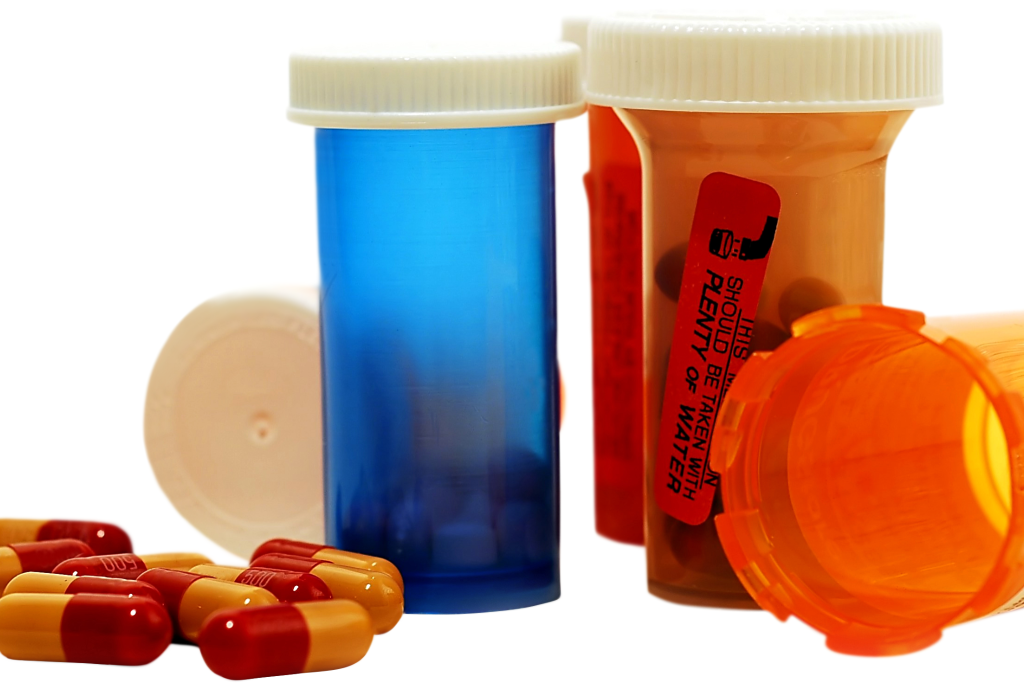
Drugs that decrease testosterone levels
- Adrenergic blockers:
- Alpha-blockers: phentolamine (Regitine) phenoxybenzamine (Dibenzyline) prazosin (Minizide)
- Beta-blockers: Digoxin (Lanoxin, Lanoxicaps), propanolol (Inderal), metoprolol (Toprol) atenolol (Tenormin)
- Calcium Channel Blockers: amlodipine (Norvasc), amlodipine/ atorvastatin (Caduet), amlodine/benazepril (Lotrel), amlodipine/ valsartan (Exforge), Cardizem, diltiazem,felodipine (Plendil), isradipine, nicardipine (Cardene), nifedipine (Adalat, Procardia), disopyramide (Norpace) verapamil (Calan, Verelan, Isoptin SR)
- Central Sympatholytics (treatment of high blood pressure through the central nervous system): clonidine (Catapres) guanabenz (Wytensin) guanfacine (Tenex) reserpine (Diupres) methyldopa (Aldoclor)
- Mixed blockers: labetalol (Trandate)
- Antacids: Cimetidine (Tagamet) Famotidine (Pepcid) Ranitidine
- Anti-Asthmatics Primarily ephedrine (Quadrinal)
- Anticholinergics Atropine (Donnatal) Benztropine (Cogentin) Diphenhydramine (Benadryl) Propantheline (Pro-Banthine)
- Antidepressants MAO inhibitors — phenelzine (Nardil), isocarboxazid (Marplan) tranylcypromine (Pamate) procarbazine (Matulane) Tricyclics — amitriptyline (Elavil) desipramine (Norpramin) nortriptyline (Pamelor) doxepin (Adapin) clomipramine (Anafranil)
- Anti-DHT Hair Loss / Prostate Hypertrophy Drug finasteride (Propecia, Proscar)
- Anti-Fungal ketoconazole (Nizoral) Antihypertensives (often used to treat high blood pressure)
- Adrenergic antagonists (treat high blood pressure and benign prostate disease): guanethidine (Esimil) guanadrel (Hylorel) mecamylamine (Inversine) Loop diuretics: furosemide (Lasix), Bumetanide (Bumex), ethacrynic acid (Edecrin)
- Potassium-sparing diuretics: spironolactone (Aldactone), amiloride (Midamor), triamterene (Dyazide)
- Thiazide diuretics: hydrochlorothiazide, Aldactazide, chlorthalidone (Combipres)
- Anxiolytics Anti-anxiety drugs: diazepam (Valium) chlorazepate, chlordiazepoxide (Librium), triazolam (Halcion) Benzodiazepines (tranquilizers)
- List includes only the most commonly prescribed Alprazolam (Xanax, Xanor, Kalma, Tafil, Alprox, Frontal(Brazil), Chlordiazepoxide (Librium, Tropium, Risolid, Klopoxid) Clonazepam (Klonopin, Klonapin, Rivotril) Clorazepate (Tranxene) Diazepam (Valium) Estazolam (ProSom) Flunitrazepam (Rohypnol, Rohydorm (Brazil) Flurazepam (Dalmane) Lorazepam (Ativan, Temesta, Lorabenz) Medazepam (Nobrium) Midazolam (Dormicum, Versed, Hypnovel, Dormonid (Brazil) Oxazepam (Seresta, Serax, Serenid, Serepax, Sobril, Oxascand, Alopam, Oxabenz, Oxapax, Murelax, Alepam Phenazepam (Russia) Quazepam (Doral) Temazepam (Restoril, Normison, Euhypnos Nocturne, Temaze or Temtabs) Triazolam (Halcion, Rilamir)
- Carbonic anhydrase inhibitors Acetazolamide (Diamox) Methazolamide
- Environmental Bisphenol A (BPA): leaches into food/drink from storing in plastics.
- Lead: paint, structures in houses built before 1960 could contain lead.
- Mercury: replace tooth fillings with new composites.
- Pesticides: fruits, vegetables, plants.
- Wash carefully. Buy organic.
- Phthalates: chemicals used in household spray deodorants, plastic toys
- Excitotoxins Monosodium glutamate, autolyzed yeast food additives (glutamate, hydrolyzed protein, sodium caseinate).
- Aspartame (artificial sweetener marketed as Equal). *Some Rx drugs contain excitotoxins; ask your pharmacist.
- Recreational Drugs: Alcohol, Amphetamines, barbiturates, benzodiazepines, cocaine, Ecstasy, heroin, LSD, marijuana, mescaline, methamphetamine, opium, psychedelic mushrooms, solvent sniffing, tobacco.
- Sedatives Barbiturates Meprobamate (Deprol)
- Statins (drugs prescribed to lower cholesterol) Crestor, Lipitor, atorvastatin, simvastatin, rosuvastatin Tranquilizers Butyrophenones: haloperidol (Haldol) Phenothiazines chlorpromazine (Thorazine) mesoridazine (Serentil) Thioxanthenos chlorprothixene (Taractan) thiothixene (Navane) Vasodilators Hydralazine (Ser-Ap-Es)
These drugs may include some lifestyle factors you’ve already considered. On the other hand, they may be a complete shock to you. Nonetheless, they all have one commonality – they threaten your testosterone levels.
These are not the only factors, as there is one large factor we have not yet addressed.
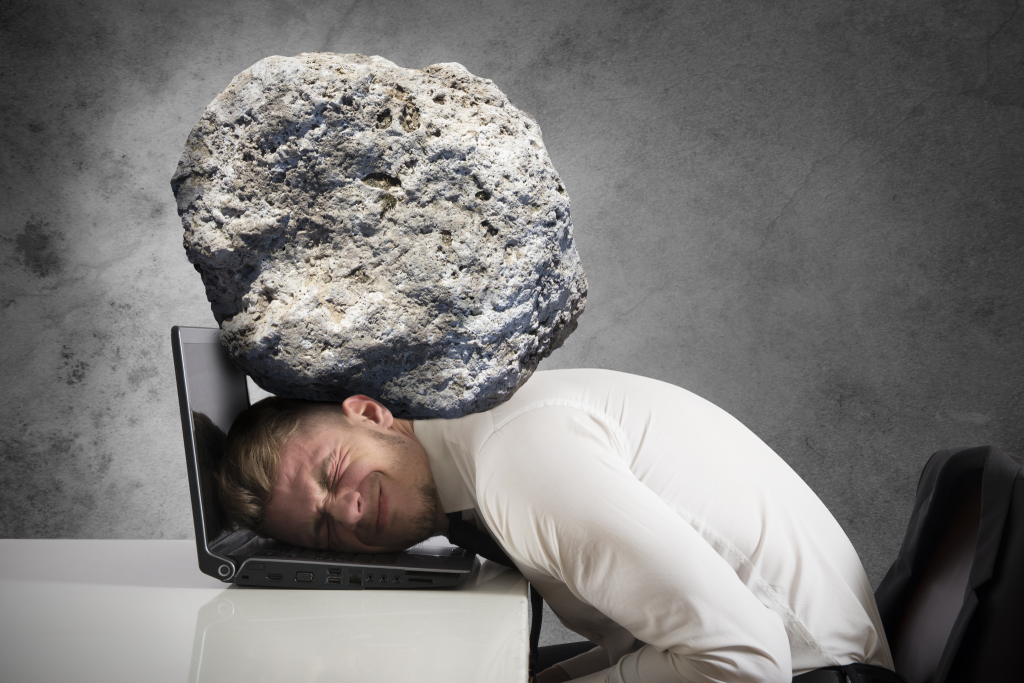
Stress kills your testosterone
Stress is something we all deal with at some point.
Ask your doctor, ask your mother, ask your wife, they’ll all say the same thing – and even you know this is true.
It’s an all too familiar feeling; the frustration is just too much and you feel as if your head will explode.
The problem is that stress has an effect on the body, even beyond your mental anxiety.
Stress has been shown to raise blood pressure, wreck your hormones (including testosterone), lead to weight gain and weaken your immune system.
These effects cannot be ignored. For the sake of your health and for the sake of your testosterone levels, the repercussions cannot be ignored either. By recognizing stress we can work to counteract its effects. How do we do that?
Accept that stress will happen. This recognition will enable you to move forward as you compartmentalize the effects of stress and will prepare you for its impact before it arises.
Learn to recognize the signs that you’re stressed. If you know what to look for, you can learn how to prepare yourself before stress hits. Stress will happen — you need to be not only prepared for it mentally, but also know how to handle it physically.
Know what helps calm you when you’re stressed!
Ways to Reduce Stress and protect your T
There are a lot of ways to reduce stress — beginning a new hobby, reading a book, listening to music, or taking a hot bath. The point is that since no two people are exactly alike, you should find what stress reduction method specifically works for you. And then practice it regularly.
The following are a series of simple techniques that often reduce stress for people and are great places to start if you have no idea what can calm you.
Take a Cleansing Breath This is one your mom probably taught you and one that has remarkably visible effects. Take a deep breath through your nose and hold it for a few seconds before slowly allowing yourself to exhale. This exhalation purges your body of stress; feel it leave your body with the rush of air billowing from your lungs and how you’ve changed your outlook. This is a simple, but extremely effective exercise that obviously can be done as often (or as seldom) as needed!
Take a Moment Off and Give Yourself a Break
Say your boss has just started yelling again.
Or you spilled coffee all over your new pants.
Or you just can’t sleep.
What do you do?
Take a few minutes to let yourself genuinely relax. This means allowing yourself to sit in a comfortable position or lay down.
Focus on breathing deeply in and out; you should feel it in your abdomen. Sense how that breath impacts your body. Don’t be distracted by what’s going on around you but rather focus exclusively on how the air moves throughout your body. You should do this exercise daily for 10 to 20 minutes at a time when possible. From a practical standpoint, do it whenever needed!
Stress happens to all of us and it happens quite frequently. Realize that a lot of what we stress over is actually a lot less important than how it feels at the time. Take a minute and consider the big picture. Is this really going to impact your life? What’s the worst outcome of this occurrence?
Remove Yourself If Necessary
If you really feel your blood starting to boil, it’s not going to help your body to scream. If none of the above techniques are working at this moment, remove yourself from the situation. This could mean taking a walk, taking a bath, walking into another room — you just need to take a few minutes to calm yourself again.
Stress negatively impacts the body in a dramatic way. This includes your testosterone levels as well as your heart’s health. Put things into perspective, take a deep breath, and don’t be afraid to take a moment or two off if you need a break – we all do sometimes. When you pay attention to your body and handle stress efficiently, you will notice a dramatic quality of life improvement. It’s an added bonus as you increase your testosterone levels!

Other Issues That Can Impact Your Testosterone
Although there are several factors that you can control (i.e., alcohol intake, drug usage, etc.), some of your bodily organs — which you cannot necessarily control — can impact your testosterone levels.
The following is a list detailing some of the conditions that can affect your levels of testosterone and how to recognize which ones afflict you.
Trans Fats
Trans fats are food preservatives that confound your testosterone levels.
Why? Trans fats are high in LDL (bad cholesterol) and low in HDL (good cholesterol). We’ve already briefly discussed this effect, but bad cholesterol clogs your arteries, which causes difficulties in maintaining erections and with your body’s ability to balance itself.
Overly Rigid Dieting
A healthy diet is important, and dieting has its place, but too often people indulge in overly rigid diets that promise quick results – and end up not only failing but depleting their testosterone levels. This is because when you slow your metabolism down you also weaken your hypothalamus, the part of the brain that directs the pituitary (center for hormone production). It’s also impacted by the fact that diets tend to focus on reducing various animal fats yet these substances actually increase your testosterone production. You can diet in a healthy way and still avoid harming your testosterone. You just have to be careful.
The Liver
The liver is an organ that acts as a filter, as we said earlier. It removes excessive substances within the body. This is great when it works, but when it doesn’t, it only serves to aggravate hormonal imbalance. The liver’s health is often a result of what we put into our bodies. Treatment for a liver problem is usually a liver detox followed by a healthier lifestyle regimen. One liver detox program calls for drinking a glass of hot water with lemon juice and a tablespoon of olive oil every day for a week. Other substances that help cleanse the liver include water, milk thistle, marshmallow root, and other herbs. To protect your liver avoid excessive use of alcohol, herbs that damage the liver, and excessive use of acetaminophen.
The Thyroid
The thyroid is the organ responsible for the production of androgens and estrogens for the body. This is an important organ because if it is off kilter your testosterone levels will be too.
Symptoms of a thyroid problem:
- Fatigue
- Depression
- Rapid weight gain
- Erection maintenance issues
If your doctor identifies you as having a thyroid problem, he will most likely treat it by supplementing your hormone levels and informing you of dietary steps you can take to improve the function of your thyroid. The reason that diet comes into play is that the thyroid is affected by what you eat. Typical foods to avoid will be discussed later in the book but include soy.
Thyroid-enhancing foods include those high in selenium and iodine.
A Good Night’s Sleep is absolutely necessary to improve your levels of testosterone. Why? Sleep is a time for regeneration. Your body actually creates needed hormones and begins working to rejuvenate itself. When you aren’t sleeping well, or often enough, studies have shown your testosterone levels could be as low as 20% of what they should be! So make sure you get quality sleep.
Low testosterone symptoms in men: Conclusion
Each of these factors impacts your testosterone in some way and each of them can be managed. If you take into account the tips provided here you will be well on your way to a naturally healthier level of testosterone – and a happier life.
Summary of Advice to Make the Lowest Possible Testosterone Impact
Avoid using drugs when you can – this includes everything from prescriptions to recreational, as drugs in general have a negative impact. Please note that there are some cases where you will need drugs for illness. In this case, they should not be avoided. Use your judgment and find a doctor you trust. Make him/her aware that you’re trying to avoid these drugs unless necessary. They often will work with you in conjunction with your health goals, and if they won’t, see if there is a reason. If they are unwilling to accommodate your wishes, consider consulting another physician regarding the use of the drugs in question.
Don’t let stress get the better of you. Learn what stresses you and how to avoid it or manage it. Discover your favorite stress-relieving technique and use it as often as needed!
Get examined if you’ve addressed the issues above and still suffer from low testosterone. A medical professional will be able to better assess your condition, such as issues with your liver or thyroid. Knowledge is a huge help in the battle to raise testosterone levels.
Avoid excessively rigid diets that can often hurt you more than help. Every night make sure to get a good night’s sleep! Never underestimate your body’s powers of rejuvenation by depriving yourself of the opportunity for satisfying and complete rest.
FAQ Section
Question: What happens if a man is low on testosterone?
Feel the impact of low testosterone! When testosterone levels decline, a man may experience a range of emotional and physical symptoms. These may include decreased energy levels, reduced sex drive, difficulty building muscle mass, increased body fat, mood swings, and even feelings of depression. It can be tough, but remember, you’re not alone, and there are ways to address this issue.
Question: How do you fix low testosterone?
Reclaim your vitality! If you suspect low testosterone, it’s crucial to consult with a healthcare professional. They can diagnose and recommend appropriate treatment options. Common approaches include testosterone replacement therapy (TRT) through gels, injections, or patches, under medical supervision. Remember, the right course of action can help you regain balance and restore your zest for life.
Question: How do you increase a man with low testosterone?
Embrace the journey of reclaiming your power! To increase testosterone levels, your healthcare provider may prescribe testosterone replacement therapy (TRT). This therapy aims to bring your hormone levels back into balance, alleviating the symptoms of low testosterone. Trust the process and collaborate closely with your healthcare professional to optimize your results.
Question: How can a man fix low testosterone naturally?
Harness the power of nature to rejuvenate your spirit! While natural methods to increase testosterone may not be as potent as medical intervention, some lifestyle changes can support your hormone health. Engage in regular exercise, maintain a healthy weight, manage stress levels effectively, get quality sleep, and consume a balanced diet rich in proteins, healthy fats, and essential nutrients. Remember, it’s a holistic journey towards wellness. Please note that low testosterone is a medical condition, and it’s important to consult with a healthcare professional for proper diagnosis and guidance. They will provide personalized recommendations tailored to your specific needs. Remember, with the right support, you can overcome this challenge and embrace a vibrant, fulfilling life.
Sources
- Advances in the management of testosterone deficiency
-
Testosterone deficiency: which patients should you screen and treat?
-
Baseline data from the TRiUS registry: symptoms and comorbidities of testosterone deficiency
- DISCLAIMER: THIS WEBSITE DOES NOT PROVIDE MEDICAL ADVICE
The information, including but not limited to, text, graphics, images and other material contained on this website are for informational purposes only. No material on this site is intended to be a substitute for professional medical advice, diagnosis, or treatment. All Products recommended here are selected by our editorial team. Some of our articles include affiliate links. If you buy something through one of these links, we may earn an affiliate commission.
- DISCLAIMER: THIS WEBSITE DOES NOT PROVIDE MEDICAL ADVICE

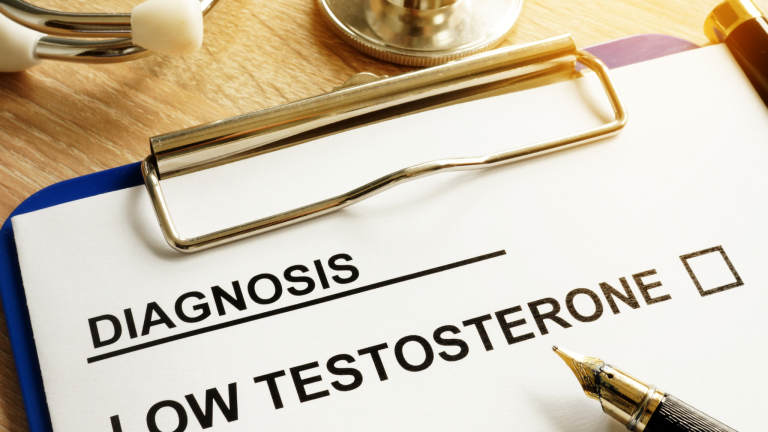

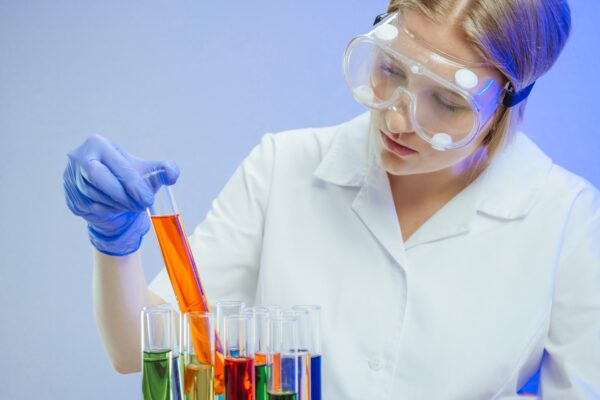
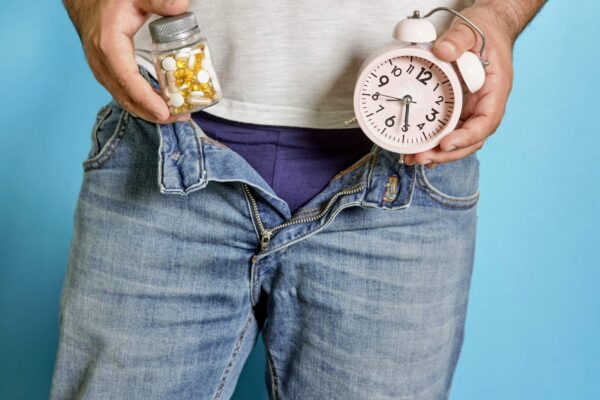

One thought on “Low testosterone symptoms in men”